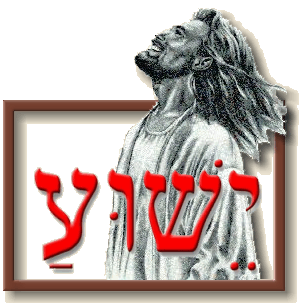
|
by haRold Smith
a citizen of the Commonwealth
(Ephesians 2:12)
"Do not think that I came to destroy the Law or the Prophets. I did not come to destroy but to fulfill. For assuredly, I say to you, till heaven and earth pass away, one jot or one tittle will by no means pass from the law till all is fulfilled. Whoever therefore breaks one of the least of these commandments, and teaches men so, shall be called least in the kingdom of heaven; but whoever does and teaches them, he shall be called great in the kingdom of heaven. For I say to you, that unless your righteousness exceeds the righteousness of the scribes and Pharisees, you will by no means enter the kingdom of heaven." Matthew 5:17-20
"And the Word became flesh and dwelt among us, and we have seen his glory, glory as of the only Son from the Father, full of grace and truth. (John bore witness about him, and cried out, "This was he of whom I said, 'He who comes after me ranks before me, because he was before me.'") And from his fullness we have all received, grace upon grace.
For the law was given by Moses, but grace and truth came by Yeshua haMashiach." John 1:14-17
Many have used this last verse to mean that since the Messiah came to give us Grace, we are no longer subject to "the law" - this is an important read in understanding the rest of this article - click on highlighted words to see content). They say because salvation is "by Grace alone" they don't have to adhere to "the law". Looking out from this telescopic view point, the entirety of the New Testament then becomes an instrument to refute the validity of Torah (the law) in the lives of many who claim to be "believers" today. However, to use any scripture in this fashion takes us from the true purpose of why scripture was given to us in the first place - to help us to learn of the Essence, the Nature and Character of this One God of Truth. If the Messiah of the New Testament and the Father of the Old Testament are One as He said they are One (John 10:30 click on highlighted verse to see scripture), how is it then possible for YHVH to refute Who He is? Words mean things and, if we are to discern Who the Father is that the Son spoke of; we must look at the meaning of the words given to us just for how they read. In so doing, we will find the Essence of this One True God never changes.
When we look closely at v17, we find the word "but" rendered in italics in most versions of the Book. The presence of italics indicates that word is not included in the original language. When we take out the word "but" (added to the transcript much later), the meaning then becomes transformed from an exclusionary statement to one that is inclusive. "For the law was given by Moses, grace and truth came by Yeshua haMashiach (the Messiah)." Not either / or, but both taken together to comprise a single thought.
The word translated as "by" in this same verse comes from the Greek word dia (a primary preposition denoting the channel of an act) and actually means "through". The original language is now more appropriately read, "For the Torah was given through Moshe, grace and truth through Yeshua haMashiach." A proper understanding of what the words mean completely changes the structure of their meaning. Now, if we put this meaning in the context of the surrounding passage of John 1:14-17, we find the words to mean that YHVH presented us with the fullness of His Glory in His Son. The Grace of the Father that was given through Moses in the Torah was revealed in fullness through the Grace of His Son - "grace upon grace". Not a new grace, not an altered grace, not a replacement grace - but the same Grace of the Father manifested fully for us to see in the Life His Son showed us how to live (see the Law of 100%).
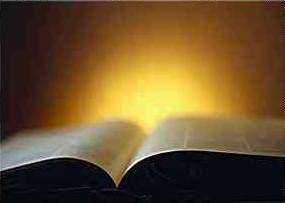 Most in Western Christianity have come to believe that "Grace" is something that is inherently exclusive to their religion. What they do not realize is that "Grace" did not begin with Yeshua. Grace is an expression of the Nature and Character of YHVH. In the unchanging Nature of the Father, we find "Grace" strewn throughout the Old Testament in the Hebrew word chen which means favor, acceptance and goodness. This is a similar definition found in the Greek word charis used for "grace" in John 1:17 above - good will, loving-kindness, favor. Noah found Grace in the eyes of YHVH
(Genesis 6:8).
Abraham found Grace in the Presence of Elohim
(Genesis 18:3).
Moses found Grace and asked the Father to then "show me your way" that he could continue to find Grace in His Sight
(Exodus 33:13).
YHVH "Graces" us with His Presence and in that relationship we find rescue, deliverance and salvation. It has nothing to do with us, of course - YHVH is the one who does the Gracing. He shows up and we are Graced by Him. But if we don't show up, all YHVH's gracing won't benefit us one bit. If we want to experience Elohim's Grace, we must choose to enter into that relationship with Him - to come into His Presence.
Most in Western Christianity have come to believe that "Grace" is something that is inherently exclusive to their religion. What they do not realize is that "Grace" did not begin with Yeshua. Grace is an expression of the Nature and Character of YHVH. In the unchanging Nature of the Father, we find "Grace" strewn throughout the Old Testament in the Hebrew word chen which means favor, acceptance and goodness. This is a similar definition found in the Greek word charis used for "grace" in John 1:17 above - good will, loving-kindness, favor. Noah found Grace in the eyes of YHVH
(Genesis 6:8).
Abraham found Grace in the Presence of Elohim
(Genesis 18:3).
Moses found Grace and asked the Father to then "show me your way" that he could continue to find Grace in His Sight
(Exodus 33:13).
YHVH "Graces" us with His Presence and in that relationship we find rescue, deliverance and salvation. It has nothing to do with us, of course - YHVH is the one who does the Gracing. He shows up and we are Graced by Him. But if we don't show up, all YHVH's gracing won't benefit us one bit. If we want to experience Elohim's Grace, we must choose to enter into that relationship with Him - to come into His Presence.
This precept of Grace found in the Torah was not changed or added to His Essence with the Restored Covenant through Yeshua. He was simply showing us how to live out the physical expression of the Father's Grace that we, too, might come into and live in the Presence of the Father as Yeshua did. We receive scriptural salvation by Grace alone - but once we have received this great salvation by gift, how then shall we live? 2Timothy 3:16 tells us that "All scripture is given by inspiration of YHVH, and is profitable for doctrine, for reproof, for correction, and for instruction in righteousness." As the New Testament had not yet been written, we can be certain that the Scripture being referred to here was the Old Testament - the Torah.
Light and darkness are two opposing forces. Where there is light, darkness does not - cannot exist. Light and darkness are the physical manifestation of the universal separation of opposites. In fact, the very definition of darkness is the "absence" of light. Light overcomes darkness and causes it to dissipate (not "flee"). The shades of grey we observe are not in the weakening of Light - they are the weakening of darkness in the presence of Light. You do not see darkness shining into a lighted house at night. The light within the house shines out into the darkness. Light and darkness, like the two opposite ends of a magnet cannot abide in the same space at the same time. The consequence of darkness in the presence of brilliance is that darkness is consumed. The more brilliant the light, the less grey there is and the demarcation between the two becomes more precise - it is a universal "law".
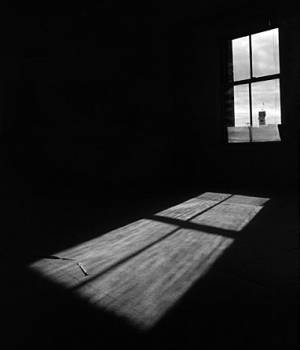 YHVH is Light
(1John 1:5-6).
The Life of YHVH Yeshua lived out before us is Light
(John 1:4)
In order to stand, to abide in the fullness of His Presence, of the most Brilliant Light imaginable, we, too, must become Light - which means we must become as He Is. The Way we become as He is, is to embrace the Life He showed to us as Light. If we bring darkness into the Light, something happens - the Light consumes the darkness. Darkness cannot stand in the Presence of Light. If we want to stand in the Presence of Light, we cannot bring darkness with us or we suffer the consequences of coming into the Presence of Brilliance without ourselves being brilliant. It is the universal law of opposites at work in our being. It is due to this "law", the law of polarizing opposites, as the reason YHVH could not fully expose Himself to Moses in
Exodus 33:20.
The Light was too Brilliant - it would have consumed him. This is the same cause of what happened to Ananias and Sapphira in
Acts 5:1-11
- a little bit of darkness brought into the Presence of the Brilliance contained within those believers brought consequence. This is the consequence Paul spoke of in
1Corinthians 11:29-30
when he told them,"That is why many of you are weak and ill, and some have died." They did not discern the Body of Yeshua (the Body of Brilliance) properly and suffered the consequences of bringing darkness into the Presence of the Light manifested in the midst of the believers. There will either be Light or there will be darkness - you can't have both. The consequence of darkness in the presence of brilliance is that darkness is consumed - how severe that consumption is determined by how brilliant is the Light.
YHVH is Light
(1John 1:5-6).
The Life of YHVH Yeshua lived out before us is Light
(John 1:4)
In order to stand, to abide in the fullness of His Presence, of the most Brilliant Light imaginable, we, too, must become Light - which means we must become as He Is. The Way we become as He is, is to embrace the Life He showed to us as Light. If we bring darkness into the Light, something happens - the Light consumes the darkness. Darkness cannot stand in the Presence of Light. If we want to stand in the Presence of Light, we cannot bring darkness with us or we suffer the consequences of coming into the Presence of Brilliance without ourselves being brilliant. It is the universal law of opposites at work in our being. It is due to this "law", the law of polarizing opposites, as the reason YHVH could not fully expose Himself to Moses in
Exodus 33:20.
The Light was too Brilliant - it would have consumed him. This is the same cause of what happened to Ananias and Sapphira in
Acts 5:1-11
- a little bit of darkness brought into the Presence of the Brilliance contained within those believers brought consequence. This is the consequence Paul spoke of in
1Corinthians 11:29-30
when he told them,"That is why many of you are weak and ill, and some have died." They did not discern the Body of Yeshua (the Body of Brilliance) properly and suffered the consequences of bringing darkness into the Presence of the Light manifested in the midst of the believers. There will either be Light or there will be darkness - you can't have both. The consequence of darkness in the presence of brilliance is that darkness is consumed - how severe that consumption is determined by how brilliant is the Light.
So where does all this confusion come from regarding law and grace, as if one nullifies the other? Could it be simply from a tradition of misunderstanding the Essence of the Father? Grace is NOT the opposite of Law, or, rather, Torah. For YHVH's Grace actually teaches us Who He Is as we see in Titus 2:11-12: "For the GRACE of YHVH that brings salvation has appeared to all men, TEACHING us that denying ungodliness and worldly lusts, we should live soberly, righteously and godly, in this present age."
How was Yeshua able to stand in the Presence of the Most Brilliant of Light - YHVH? It was because He studied to learn about, to know the characteristics of that Brilliance and chose to fashion His Life after those properties in His every day affairs (Luke 2:46, John 17:3). The salvation Grace brings into our life by embracing the fullness of the Brilliance (virtue) of His Life is the authority or power that comes with that embrace to change our polarity from darkness (that would naturally keep us from Light) into Light that we might enter into the fullness of His Presence (Greek ecksousia meaning power of choice Luke 9:1. see Authority). When we embrace His Life, we embrace the Power that Light gives us to choose where we will stand - in Light or in darkness in any given situation at any given moment (John 1:12). The more we allow ourselves to be changed into Light through the choices we make in various circumstances, the more Brilliant that Light becomes within us - the line of demarcation becomes more precise so there becomes less grey. We become polarized. How, then, do we know what choices to make to cultivate Light? How do we learn of what that Brilliance is to be able to come more fully into it? How did Yeshua learn of that Brilliance (Life)? The same way the Father has given the Grace for us to learn - He developed an intimate relationship with the Father and verified what He was hearing in the Spirit by the words of the only scripture available to Him at the time - the Torah.
Malachi 3:6
What is Torah? Most commonly, Torah is referred to as the first five books of the Bible: Genesis, Exodus, Leviticus, Numbers, and Deuteronomy - sometimes called the "Books of Moses." In these books we find "His" story of creation: the wondrous creation of the universe and of mankind; the establishment of a People and a Land set apart for all time to reveal the One True Elohim of Israel to the World. But it is much, much more. It is within Torah we find the Unchangeable Essence of YHVH - His Love, His Ways, His Nature, His Character. This is the same place where Yeshua found Him to be.
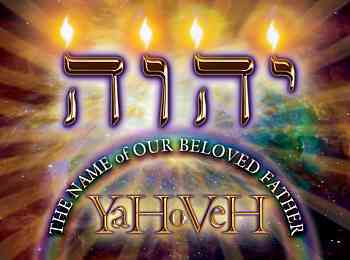 The word "Law" is of Greek, not Hebrew, origin. The name of the fifth book of Torah is Devarim in Hebrew. This Hebrew name means "words" and is taken from the first words of the book, "These are the words that Moses spoke to the Israelites across the Jordan"" - not written, but spoken. But in the Greek translation of the Bible adopted by those calling themselves the Christian Church at the council of Nicene, the book's title was changed to Deutero-nomos - derived from the Greek word nomos, meaning "law". This revision now describes its contents as a review of the law, a second law. The Greek nomos is not the equivalent of the Hebrew word Torah - thus, once again, we find we are left with an altered meaning from the intent of the original language. The Hebrew language does contain words for a "statute", a "ruling" and, of course, a mitzvah, a "commandment." But the word torah itself means "instruction or teaching" about the uniqueness of this Person - YHVH.
The word "Law" is of Greek, not Hebrew, origin. The name of the fifth book of Torah is Devarim in Hebrew. This Hebrew name means "words" and is taken from the first words of the book, "These are the words that Moses spoke to the Israelites across the Jordan"" - not written, but spoken. But in the Greek translation of the Bible adopted by those calling themselves the Christian Church at the council of Nicene, the book's title was changed to Deutero-nomos - derived from the Greek word nomos, meaning "law". This revision now describes its contents as a review of the law, a second law. The Greek nomos is not the equivalent of the Hebrew word Torah - thus, once again, we find we are left with an altered meaning from the intent of the original language. The Hebrew language does contain words for a "statute", a "ruling" and, of course, a mitzvah, a "commandment." But the word torah itself means "instruction or teaching" about the uniqueness of this Person - YHVH.
Most of the misunderstanding of what Torah is comes from simple ignorance. If we have been taught to believe that something has no bearing on our life - then, why spend the effort to learn of it? The word Torah is often mistakenly translated as 'written law' when Torah does not mean "precept, statute, or law." The meaning of the Hebrew word is most appropriately translated as "teachings or instructions" - not "law". Torah can be used to specifically denote the first five books of the Bible, or to collectively speak of the Old Testament (most commonly known as the Tenakh). According to the definition given us in 2Timothy 3:16, Brit Chadashah (the New Testament) is Torah - ALL SCRIPTURE that is given as the spoken or inspired Word of Elohim.
The word torah is a noun derived from the verb yara meaning to "throw, shoot or cast". For example, when Pharaoh's armies were "cast" into the sea, the word used is yara. If in ancient times, one asked for directions, the person giving them might "cast or throw" his hand in a given direction and say, "It's that way." Yeshua said He is "the Way, the Truth and the Life." The example of His Life is the "Way (Torah)" to the Truth of the Father. Do you see the picture presented?
These books contain 613 commandments (again, mitzvah - not nomos), however, these commandments were not given to the Israelites while in bondage as a means of redemption - they were given to an already redeemed people as a guide of how to live as a redeemed people in the Presence of this One True God of Life. The redemption of the Israelites was unearned - YHVH heard their cries in Egypt and rescued them because of their need and His compassion (Grace) - the same as He does with us today. He then set out to fashion them into a Holy Nation, a Kingdom of Priests, to show forth His Grace and His Glory.
And He said, "My Presence will go with you, and I will give you rest." Exodus 33:14
Say to them: "Whoever of all your descendants throughout your generations, who goes near the holy things which the children of Israel dedicate to the LORD, while he has uncleanness upon him, that person shall be cut off from My Presence: I am the LORD." Leviticus 22:3
"For YHVH did not call us to uncleanness, but in purity." 1Thessalonians 4:7
Why was the law given? Sha'ul (the apostle Paul) tells us in Romans 7:7-14 that the law was given to instruct us in the Way of the Father that we might come to know His Essence, the core of Who He Is in order that we might have access into His Presence and not be cut off - polarized. Having been sanctified (set apart) by faith, the next step in this process is to be obedient to the characteristics of Light. Learning what the properties of Light are is essential to being able to stand fully in the Presence of that Light so that we are not consumed. The purpose of salvation is that we overcome sin (darkness) to become Holy (Light) as YHVH is Holy (Leviticus 11:44, 1Peter 1:13-16). To stand in the Presence of Light, we have to understand the properties of Light, the characteristics of Light - where that Light is so we know how to abide in it rather than being consumed by it.
In Galatians 3:24-25, the Greek word for "schoolmaster" is paidagogos meaning tutor or instructor. Among the Greeks and the Romans the name was applied to trustworthy slaves who were charged with the duty of supervising the life and morals of boys belonging to the better class until they arrived at the age of manhood. This definition is in perfect harmony with the purpose of Torah - teaching us until we become a mature adult, unto the measure of the stature of the fullness of the Messiah (Ephesians 4:13-16).
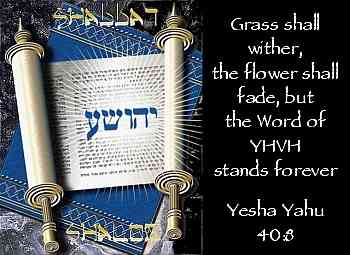 The law was given that we might know the difference in behavior that would preclude us from coming into His Presence - that would polarize us
(Romans 5:19-21,
see the Testimony).
Sha'ul, being Jewish, wrote these words in Romans from a Jewish mindset, having been raised in a Jewish culture, learning of the Father the same way Yeshua learned of the Father - from the Torah. He was not saying to "not keep the instructions, the teachings (law)". He was saying the same thing Yeshua said - learn of Me and I will give you Rest in My Presence. We have been taught backwards - we need to look at Sha'ul from the vantage point of the Life of Yeshua which exalts the Essence of the Father. Coming from the other direction distorts what Sha'ul was trying to convey - seemingly putting him at odds with Who he knew Truth to be. Coming from the opposite direction polarizes the Truth of Who YHVH is into our idea of who we think He OUGHT to be - instead of knowing Him for Who HE says He is. That is not the way scripture is meant to be approached. We need to embrace ALL scripture from the standpoint of how it is interwoven into the changeless Nature of the One True God of Israel. It is His Righteousness we are wanting to access. Trying to keep Torah apart from the Essence of the Father does not make us righteous - but, in the same regard, trying to enter into the Righteousness of the Father just any 'ole way we choose doesn't cut it either.
The law was given that we might know the difference in behavior that would preclude us from coming into His Presence - that would polarize us
(Romans 5:19-21,
see the Testimony).
Sha'ul, being Jewish, wrote these words in Romans from a Jewish mindset, having been raised in a Jewish culture, learning of the Father the same way Yeshua learned of the Father - from the Torah. He was not saying to "not keep the instructions, the teachings (law)". He was saying the same thing Yeshua said - learn of Me and I will give you Rest in My Presence. We have been taught backwards - we need to look at Sha'ul from the vantage point of the Life of Yeshua which exalts the Essence of the Father. Coming from the other direction distorts what Sha'ul was trying to convey - seemingly putting him at odds with Who he knew Truth to be. Coming from the opposite direction polarizes the Truth of Who YHVH is into our idea of who we think He OUGHT to be - instead of knowing Him for Who HE says He is. That is not the way scripture is meant to be approached. We need to embrace ALL scripture from the standpoint of how it is interwoven into the changeless Nature of the One True God of Israel. It is His Righteousness we are wanting to access. Trying to keep Torah apart from the Essence of the Father does not make us righteous - but, in the same regard, trying to enter into the Righteousness of the Father just any 'ole way we choose doesn't cut it either.
For believers in Yeshua haMashiach, the Torah is even broader than it is for the rabbis because the Gospels are Torah. Paul's writings are also Torah. The epistles are Torah. The Revelation of John is also Torah. It is all teaching which builds upon, and agrees with, the first books of YHVH's Torah as delivered through Moses (Romans 3:31).
We're used to thinking of "Torah" as "law," and so we're used to thinking of it as a sterile list of rules and regulations. Yes, the Torah does set out some regulations for the governance of YHVH's people. But it's much, much more than that. YHVH's Torah is a detailed description of who HE is and how HE works. It describes what He is like and how He defines Holiness. It presents His expectations for His people. The Torah is nothing less than a reflection of His perfect will and wisdom. As such, it expresses the perfection of YHVH and places before us an unchanging standard of godliness. Only through a life lived out in the expression of Torah, exampled by Yeshua, are we able to show the world what YHVH is like. Instead of tossing aside 85% of the Book and then using the other 15% to justify our behavior, we should be looking at 100% of the Book to see how all of it is interwoven into the magnificence of the Essence, Nature and Character of the Father (see the Law of 100%).
Romans 6:12-14 says it is the law of sin and death we have been set free from - not the book of instruction about how to tell the difference and how to walk in righteousness so that we are not shackled and bound by the law of James 1:14-16. and polarized from the Presence of His Light.
|
"But this I confess to you, that according to the Way, which they call a sect, I worship the God of our fathers, believing everything laid down by the Law (Torah) and written in the Prophets, having a hope in God, which these men themselves accept, that there will be a resurrection of both the just and the unjust. So I always take pains to have a clear conscience toward both God and man." the apostle Paul - in a public proclamation of his beliefs before the Roman governor Felix AFTER the four edicts were given for the Gentile believers coming to faith in the council at Jerusalem. Romans 3:31 |